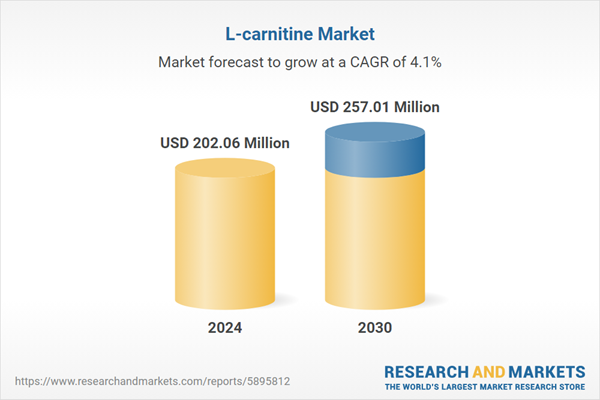Speak directly to the analyst to clarify any post sales queries you may have.
10% Free customizationThis report comes with 10% free customization, enabling you to add data that meets your specific business needs.
Key market drivers include growing consumer interest in nutraceuticals, expanding sports nutrition uptake, and the rising incidence of health conditions such as obesity and fatigue. With its functional versatility, L-carnitine is gaining traction in therapeutic, nutritional, and aging-related health markets. Product diversification, ongoing biotechnological advancements, and strategic collaborations are further strengthening its market positioning.
Key Market Drivers
Expanding Sports Nutrition and Fitness Industry
The surge in physical activity across all age groups is a significant contributor to the rising demand for L-carnitine. Young adults aged 18-34 lead this trend, with nearly 40% engaging in daily exercise. Individuals aged 35-54 follow closely, with 35% maintaining consistent physical activity, and 25% of the 55+ age group also participating regularly.This widespread adoption of fitness lifestyles is fueling the need for ingredients that enhance endurance, boost energy, and support fat metabolism. L-carnitine’s ability to transport fatty acids into mitochondria for energy generation makes it a go-to ingredient in performance supplements. The growing popularity of structured exercise programs and recreational sports globally - evident from the 44% weekly activity rate in the European Union in 2019 - is driving consistent growth in L-carnitine demand across diverse consumer segments.
Key Market Challenges
Regulatory Compliance and Labeling
Navigating regulatory frameworks is a significant hurdle for companies in the L-carnitine market. Regulations concerning dietary supplements vary widely across countries, particularly in relation to health claims and labeling. Manufacturers must ensure product claims are substantiated and comply with jurisdiction-specific regulations.Failure to adhere to these standards may result in penalties or reputational damage. Ensuring transparency, legal compliance, and documentation of efficacy and safety data is essential for market players to maintain trust and competitiveness.
Key Market Trends
Plant-Based L-Carnitine
The emergence of plant-based L-carnitine supplements is transforming product development strategies. As consumer demand for vegan and cruelty-free alternatives grows, manufacturers are turning to biotechnology and fermentation to create plant-derived L-carnitine. This aligns with rising interest in clean-label nutrition and sustainability.The shift towards plant-based offerings enables companies to tap into a broader audience while reinforcing their commitment to ethical and eco-friendly practices. As innovation continues in the biotech space, plant-sourced L-carnitine is expected to gain further momentum.
Key Market Players
- Lonza Group AG
- Northeast Pharmaceutical Group Co Ltd
- Biosint-SpA
- Cayman Chemical Co Inc
- Merck KGaA
- Tokyo Chemical Industry Co., Ltd.
- Kaiyuan Hengtai Nutrition Co Ltd
- Chengda Pharmaceuticals Co Ltd
- Huanggang Luban Pharmaceutical Co Ltd
- Hubei Yuancheng Saichuang Technology Co.,Ltd
Report Scope
In this report, the Global L-Carnitine Market has been segmented into the following categories, in addition to the industry trends which have also been detailed below.L-carnitine Market, By Process:
- Chemical Synthesis
- Bioprocess
L-carnitine Market, By Product:
- Food & Pharma Grade
- Feed Grade
L-carnitine Market, By Application:
- Animal Feed
- Healthcare Products
- Functional Food & Beverage
- Medicines
L-carnitine Market, By Region:
- North America
- United States
- Canada
- Mexico
- Europe
- France
- United Kingdom
- Italy
- Germany
- Spain
- Asia-Pacific
- China
- India
- Japan
- Australia
- South Korea
- South America
- Brazil
- Argentina
- Colombia
- Middle East & Africa
- South Africa
- Saudi Arabia
- UAE
- Kuwait
Competitive Landscape
Company Profiles: Detailed analysis of the major companies present in the Global L-Carnitine Market.Available Customizations
With the given market data, the publisher offers customizations according to a company's specific needs. The following customization options are available for the report.Company Information
- Detailed analysis and profiling of additional market players (up to five).
This product will be delivered within 1-3 business days.
Table of Contents
Companies Mentioned
- Lonza Group AG
- Northeast Pharmaceutical Group Co Ltd
- Biosint-SpA
- Cayman Chemical Co Inc
- Merck KGaA
- Tokyo Chemical Industry Co., Ltd.
- Kaiyuan Hengtai Nutrition Co Ltd
- Chengda Pharmaceuticals Co Ltd
- Huanggang Luban Pharmaceutical Co Ltd
- Hubei Yuancheng Saichuang Technology Co.,Ltd
Table Information
| Report Attribute | Details |
|---|---|
| No. of Pages | 185 |
| Published | April 2025 |
| Forecast Period | 2024 - 2030 |
| Estimated Market Value ( USD | $ 202.06 Million |
| Forecasted Market Value ( USD | $ 257.01 Million |
| Compound Annual Growth Rate | 4.0% |
| Regions Covered | Global |
| No. of Companies Mentioned | 10 |









